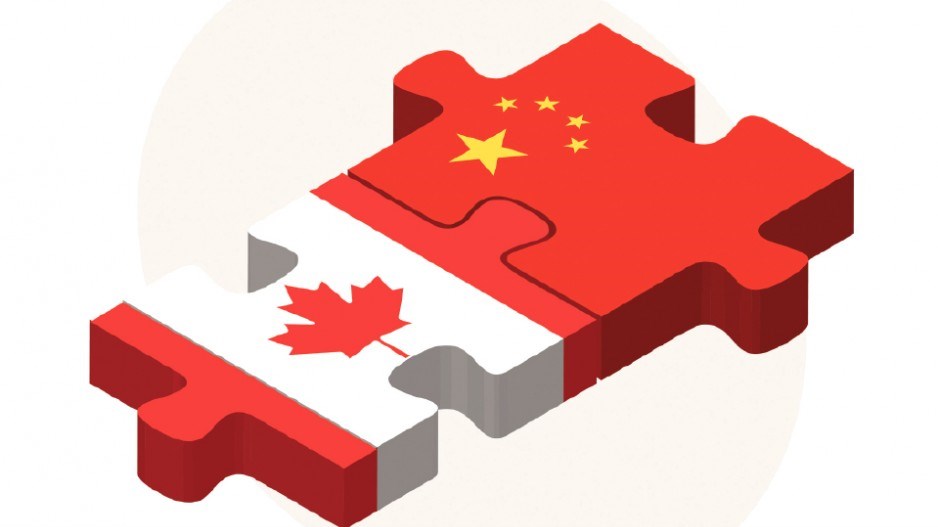Canada’s top diplomatic thinkers appear overwhelmingly in agreement when they say that Ottawa needs to “reboot” the conversation with China in light of a major falling-out in recent years.
But there’s deep disagreement about what a “reboot” means.
That chasm between positions again revealed itself in late July, when Simon Fraser University’s Jack Austin Centre for Asia Pacific Business Studies co-hosted a webinar with a Chinese think tank to discuss Canada’s future economic path with China.
During the webinar, Jack Austin, a former leader of government in the Senate and chief of staff to prime minister Pierre Trudeau in 1974, urged Canadians to be pragmatic in finding common ground with China despite current tensions.
“Simply stated, China is a permanent reality in the global system,” said Austin, who was a member of Canada’s first trade mission to Beijing after formal relations were established in 1970. “So is Canada. Our governance systems are vastly different. So is our history and culture. We see the role of the individual in our societies in different ways. Neither of us will change.”
In a subsequent interview, Austin acknowledged that his position contrasts with a growing number of voices in Canada arguing for a more hardline stance against Beijing, but he believes that would yield little value to Canadians.
“Where I come from, it’s looking for ways to move the relationship to more constructive grounds than simply debating items deemed to be of critical value. We have values, we’ve declared our values, and China has done the same; let’s look at pragmatic realism as the operational way forward.”
Several high-profile Canadians in politics and diplomatic circles agree that Ottawa should avoid antagonizing China. In June, 19 such officials sent a letter to Prime Minister Justin Trudeau lobbying Ottawa to intervene in the extradition process of Huawei Technologies Co. Ltd. CFO Meng Wanzhou on the grounds that “the U.S. extradition request has put Canada in a difficult position.”
The letter’s signatories said a stay of Meng’s extradition proceedings – widely seen as damaging Canada’s relationship with China – would “clear the way for Canada to freely decide and declare its position on all aspects of the Canada-China relationship.”
That stance runs in sharp contrast to Ottawa taking more aggressive actions against Beijing to secure the return of Canadians Michael Kovrig and Michael Spavor, who were arrested in China on espionage charges soon after Meng’s arrest in Vancouver in December 2018. An Angus Reid poll showed only 14% of Canadian adults had a favourable opinion of China.
Criticism of China has also been rising among Canadian officials who previously worked closely on the Chinese portfolio on behalf of Ottawa. For example, former Canadian ambassador to China David Mulroney has been outspoken in recent years about the need for Canada to re-examine its relationship with Beijing.
When asked if pragmatic realism was the proper way forward for Canada-China relations, Mulroney’s assessment was blunt.
“I think that saying ‘We can’t change what China does’ leaves the door open to a range of unacceptable behaviours, everything from kidnapping Canadians to turning Xinjiang into a prison camp,” Mulroney said. “Speaking out and mobilizing international opposition to things like this may not change China’s behaviour in the short term, but it reminds Beijing of the cost it incurs in terms of international approval – which does register with China’s leaders.”
While both proponents of engagement and vocal critics agree on the need to reboot the nature of Canada-China talks, critics say pro-engagement officials’ use of “reboot” is simply looking to frame the conversation in a way to placate China in keeping existing business links.
China is Canada’s second-largest trade partner, and imports large quantities of Canadian commodities such as minerals, lumber, seafood and agrifoods.
Recently, the Canada-China relationship was strained further when Beijing passed hardline national security laws in Hong Kong – formerly housing an independent judiciary system based on western rule of law – effectively ending the city’s autonomous rule and allowing Chinese mainland authorities to make arrests and pursue extraditions in the former British colony.
Canada has since ended its extradition agreement with Hong Kong – essentially declaring the city’s judicial system to no longer be trustworthy as an independent process. The United States, Australia, New Zealand and Great Britain have made similar moves.
When asked about how Canada should approach the Hong Kong issue, Austin said it is beyond Canada’s power to change.
“All I can say is that, up to now, we have expressed concerns about some issues, but Hong Kong is China,” Austin said. “There’s no value in China by itself being confrontational. We’ve expressed our concerns, and, obviously, Canadians in Hong Kong can come to Canada any time they want. Those are their decisions. The adjustment in Hong Kong is painful for everyone; China has asserted itself, and it has the position to do so.”
The relationship, he added, should be centred around “informing a new view” on the Canada-China relationship.
“Look at the issues we have very much in common and should co-operate on for the benefit of each side. There are also issues where engagement is difficult, but both sides see a desirability to engage and explore the possibilities of a better relationship. And then there’s a third tier of issues where each side sees a fundamental clash of core interests – and in that area, you simply work to build trust across the first two areas, and hopefully the sides will eventually become willing to engage in a discussion of core interests.”
That position, said Mulroney, has proven ineffective given Beijing’s increasingly aggressive actions on the global stage.
“What’s probably more important, speaking out [against China’s wrongdoings] guards against normalizing outrageous behaviour and reminds Canadians that as a country we have standards and integrity,” he said. “We betray both if we pretend that responding to gross violations of human rights and deepening political oppression can be addressed by ‘deepening trust’ with China.”




